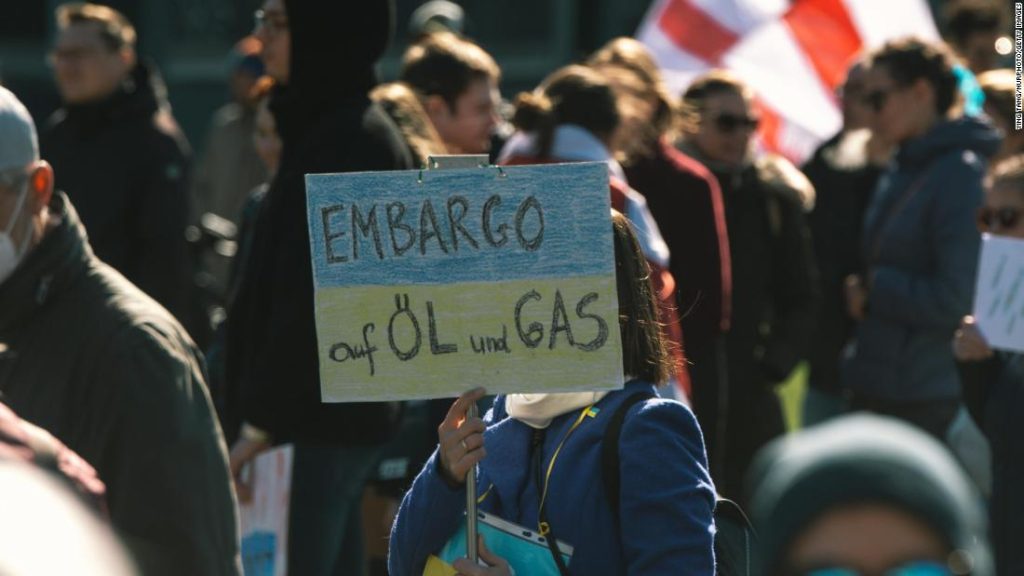“We have to discuss how we can support Ukraine further, politically and economically, with humanitarian aid and security, everything is on the table. So we can ensure that we will do what we can to stop Putin and his aggression against Ukraine,” Danish Foreign Minister Jeppe Kofod told reporters. “It is important With economic sanctions to continue on this path.”
“I think it is inevitable to start talking about the energy sector. We can certainly talk about oil, because it is the biggest revenue for the Russian budget,” said Lithuanian Foreign Minister Gabrielius Landsbergis upon his arrival in Brussels to meet with his Lithuanian counterpart. counterparts in the European Union.
Other countries in the European Union support the idea of striking Russia’s most valuable asset with sanctions.
“Given the extent of the devastation in Ukraine at the moment, it is very difficult – in my opinion – to prove that we should not move into the energy sector, particularly oil and coal, in terms of boycotting normal trade in that,” said Irish Foreign Minister Simon Coveney.
The European Union currently depends on Russia for about 40% of its natural gas. Russia also supplies about 27% of oil imports, and 46% of coal imports.
What will Germany do?
There is also a risk that Russia will retaliate by restricting natural gas exports. Deputy Prime Minister Alexander Novak said this month that Moscow might cut off gas supplies to Germany via the Nord Stream 1 pipeline as punishment. Berlin is blocking the new Nord Stream 2 pipeline project.
However, political opinion may intensify in Europe as Russia intensifies its attacks on Ukrainian cities, killing hundreds of civilians and forcing millions to flee their homes.
Much will return to countries such as Germany, Russia’s largest energy consumer in Europe, as well as other countries that buy much of its gas, such as Hungary and Italy.
German Foreign Minister Annalena Barbock said the country was “working at full speed” to end its dependence on Russia, but that, like some other EU countries, it could not stop buying Russian oil from day to day.
“If we can do it spontaneously,” she said.
Canada, the United States, the United Kingdom, and Australia have already banned imports of Russian oil, affecting nearly 13% of Russia’s exports. The moves of major oil companies and international banks to stop dealing with Moscow after the invasion force Russia to offer its crude at a huge discount.
The Paris-based International Energy Agency, which monitors energy supplies for the world’s leading advanced economies, said Russian production could fall by 3 million barrels per day.
“The implications of a possible loss of Russian oil exports to world markets cannot be underestimated,” the International Energy Agency said in its monthly report.

“Writer. Evil travel maven. Avid creator. Proud beer expert. Music lover. Explorer.”











More Stories
Jake Sullivan meets Yang Jiechi in Luxembourg, paving the way for a possible meeting between Biden and Xi
The CDC adds 3 places to its “high” risk list, including Mexico and the United Arab Emirates
Wordle 359 June 13 – Struggling with Wordle today? THREE CLUES TO HELP ANSWER | Games | entertainment